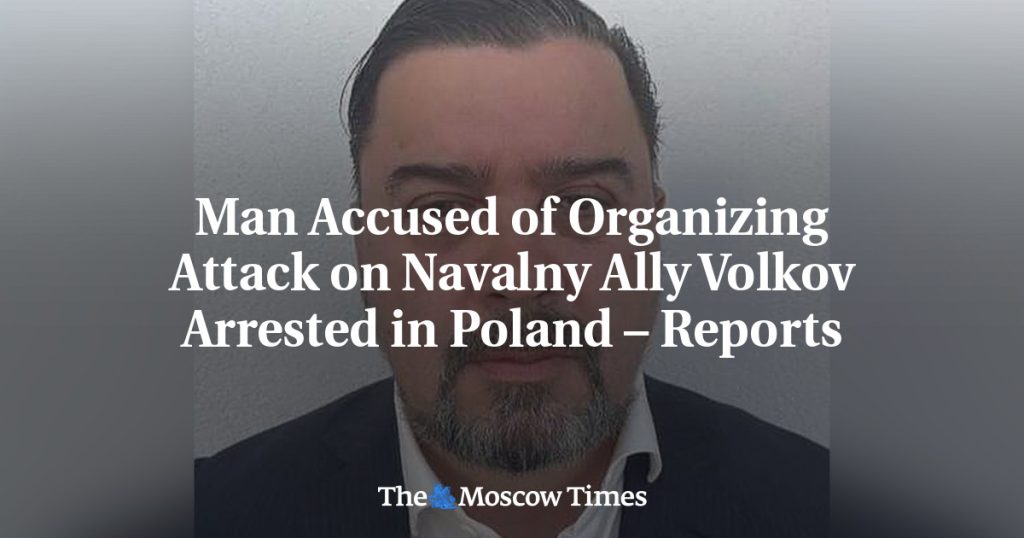A man has been detained in Poland for allegedly organizing attacks on allies of late Kremlin critic Alexei Navalny. Last week, Navalny’s team published an investigation accusing Leonid Nevzlin, an exiled billionaire and associate of Kremlin critic Mikhail Khodorkovsky, of orchestrating attacks in Lithuania, Switzerland, and Argentina. Nevzlin has denied any involvement in the attacks and stated that justice will confirm the baselessness of the accusations against him. According to Navalny’s team, Nevzlin allegedly ordered the attack on one of Navalny’s aides through a lawyer named Anatoly Blinov, who is now living in Poland.
Sirena, an outlet founded by Navalny allies, reported that Polish law enforcement has detained Blinov. A letter from the Polish Prosecutor’s Office confirmed that Anatoly Blinov is under temporary arrest in a case being conducted by the Mazovian Division of the Department for Organized Crime and Corruption of the National Prosecutor’s Office. The authenticity of the letter could not be independently verified by The Moscow Times, and Polish authorities have not officially commented on the reported arrest. The accusations against Nevzlin have caused a rift within Russia’s exiled opposition, with some prominent figures, including Khodorkovsky, defending Nevzlin.
It is unclear how the legal process will proceed, as Nevzlin resides in Israel and the alleged crimes occurred in multiple countries. Lithuanian President Gitanas Nauseda has stated that his country will seriously consider the claims against Nevzlin. This situation highlights the complexities involved in pursuing legal action against individuals accused of organizing international attacks from different countries. The involvement of various nations in investigating and prosecuting such crimes adds a layer of complexity to the legal proceedings.
The case involving Nevzlin and Blinov sheds light on the challenges faced by opposition figures and their allies in seeking justice against those who target them. The accusations made by Navalny’s team have prompted a significant response within the exiled opposition, with debates and conflicts arising over the credibility of the claims. The legal and diplomatic intricacies of addressing transnational attacks further complicate the process of holding individuals accountable for their actions. The involvement of multiple countries in investigating and prosecuting such crimes requires close cooperation and coordination among law enforcement agencies.
The detention of Blinov in Poland indicates a step towards potential legal action against those accused of orchestrating attacks on Navalny’s allies. The collaboration between Navalny’s team and Polish law enforcement demonstrates a concerted effort to pursue justice in cases of alleged transnational violence. The support and defense offered to Nevzlin by some prominent figures in Russia’s exiled opposition suggest a complex and nuanced response to the accusations. The unfolding events surrounding this case underscore the challenges faced by individuals and organizations seeking accountability for attacks carried out across borders.
The developments in the Nevzlin case highlight the high-stakes nature of international investigations into attacks on dissidents and critics of the Russian government. The involvement of multiple countries, legal systems, and political interests adds layers of complexity to the pursuit of justice in such cases. The response from various actors involved, including the accused, their defenders, and the authorities responsible for investigating the allegations, showcases the intricate dynamics at play in addressing transnational crimes. As the legal process unfolds and more details emerge, the implications of this case for the pursuit of justice and accountability in cases involving attacks on activists and opposition figures will become increasingly apparent.


